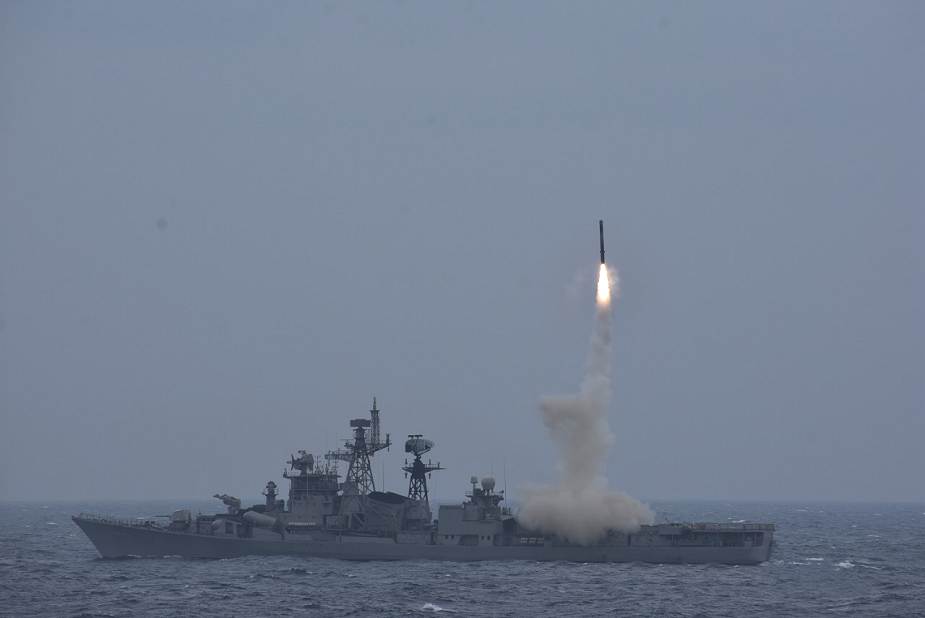The Indian Navy test-fired the anti-ship supersonic cruise missile version of the BrahMos cruise missile from indigenously-built destroyer INS Ranvijay in the Bay of Bengal. The missile hit the target successfully with pin-point accuracy after performing high-level and extremely complex manoeuvres, hitting a target in the Arabian Sea. This was the fourth test of the supersonic missile by the Indian Army in the last eight days and the seventh test of the missile by India in the last 70 days. The BRAHMOS as ‘prime strike weapon’ will ensure the warship’s invincibility by engaging naval surface targets at long ranges, thus making the destroyer another lethal platform of Indian Navy.
The first of these tests took place on 30 September. The second launch, which was conducted by the Indian Navy from INS Chennai, took place on 18 October. On 30 October, the missile was test-fired from an Indian Air Force Su-30MKI. The fourth and fifth tests of the BrahMos missile took place in the Andaman and Nicobar Islands on 24 and 25 November, respectively. The sixth test of the missile was conducted by the Indian Air Force. These tests came at a time when the DRDO has been working not only on extending the range of the missile but also to increase its indigenous content. The missile, which currently uses a Russian-origin seeker for guidance during flight, will soon get an Indian seeker.
The BrahMos (designated PJ-10) is a medium-range ramjet supersonic cruise missile that can be launched from submarine, ships, aircraft, or land. It is the fastest supersonic cruise missile in the world. It is a joint venture between the Russian Federation’s NPO Mashinostroyeniya and India’s Defence Research and Development Organisation (DRDO), who together have formed BrahMos Aerospace. It is based on the Russian P-800 Oniks cruise missile and other similar sea-skimming Russian cruise missile technology. The name BrahMos is a portmanteau formed from the names of two rivers, the Brahmaputra of India and the Moskva of Russia.
It is the world’s fastest anti-ship cruise missile in operation. The land-launched and ship-launched versions are already in service. An air-launched variant of BrahMos appeared in 2012 and entered service in 2019. A hypersonic version of the missile, BrahMos-II, is also presently under development with a speed of Mach 7-8 to boost aerial fast strike capability. In 2016, as India became a member of the Missile Technology Control Regime (MTCR), India and Russia are now planning to jointly develop a new generation of Brahmos missiles with 800 km-plus range and an ability to hit protected targets with pinpoint accuracy.
 Post Views: 195
Post Views: 195














